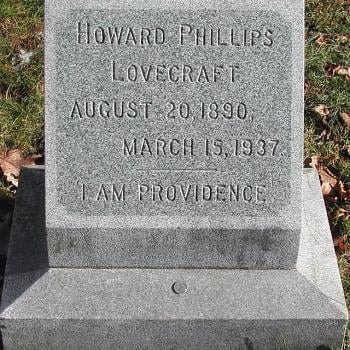Thanksgiving dinner almost always involves more work than we anticipate. So, my wife and I typically listen to the broadcast of the Macy’s Day Parade while we are making preparations for dinner. I’ve discovered along the way that the parade is a valuable window into at least some of what is happening in the American spiritual landscape. But I don’t always like what I see.
This year one of the floats was a large, garish thing called the “Castle of Dreams” and was sponsored by “My Princess Academy.” As they describe it, the “real” Castle of Dreams is apparently the centerpiece of an “extraordinary online school that teaches your daughter to be the princess she’s always imagined -- her best self, full of generosity, confidence, beauty, and friendship.” The Academy goes on to promise: “In an enchanted castle filled with magical classrooms, she’ll play fantastic games, participate in wonderful activities and earn ‘Princess Points’ to decorate her very own Princess Dorm Room! She’ll advance from ‘Pixie Princess’ to ‘Crown Princess’ and go back out into the world spreading the wonderful virtues she’s learned . . . Because every girl should grow up to rule!”
This is all bad enough, but on one level it is typical, Madison Avenue dreck; and the website’s creators would no doubt argue that we all role play as children and learn from it. Fair enough. As one who has a daughter, however, I find the notion that any of us can become our best selves by becoming something else first -- never mind anything as useless as a princess -- is a disturbing way into role play. And I hardly think that what God wants for us is “to rule” -- whatever that might mean.
But that’s not the point of this column.
This year the float featured singer Keri Hilson singing her new hit, “Pretty Girl Rock,” the lyrics of which are as follows:
Uh uh uh aahh uh uh
I can do the pretty girl rock rock
Rock to the pretty girl rock rock rock
Now what’s your name
My name is Keri,
I’m so very
Fly oh my is a little bit scary
Boys wanna marry looking at my deri
And you can stare but if you touch then ima beri
Pretty as a picture
Sweeter than a swisher
Mad cause I’m cuter than the girl that is with ya
I ain’t gotta talk about it baby you can see it
But if you want I’ll be happy to repeat it
My name is Keri, I’m so very
Fly oh my is a little bit scary
Boys wanna marry looking at my deri
And you can stare but if you touch it ima beri
Pretty as a picture
Sweeter than a swisher
Mad cause I’m cuter than the girl that is with ya
I can talk about it cause I know that I’m pretty
If you know it too then ladies sing it with me
All eyes on me when I walk in,
No question that this girl’s a 10
Don’t hate me cause I’m beautiful.
Don’t hate me cause I’m beautiful.
My walk my talk the way I dress
It’s not my fault so please don’t trip
Don’t hate me cause I’m beautiful
Don’t hate me cause I’m beautiful
Aye, now do the pretty girl rock rock rock
Here, at last, is the real reason that I would not want the Castle of Dreams or Ms. Hilson teaching my daughter virtue. Both are deeply enthralled to a cultural misunderstanding of beauty that regularly confuses it with sex, lust, and manipulation -- missing entirely the spiritual dimensions of beauty.
Beauty is not just about physical beauty, never mind the current notions of what a woman’s body should be. Beauty, in its most elemental form applies to the whole of creation and it is the word we use to account for the harmony, balance, and wonder that is present in the created order thanks to the work of God. Beauty, in fact, is an attribute of God, which is why the Orthodox tradition teaches that “that which is holy is beautiful.” Our grandmothers had the same thing in mind when they reminded us, “Pretty is as pretty does.”
In other words, beauty is not just about something that is aesthetically attractive. That is why the aesthetically attractive can be repulsive or even pornographic at the same time; and that is also why the dividing line between beauty and pornography is such a fragile thing.
Perhaps one of the most beautiful human beings of recent memory was Mother Theresa, who -- by the standards of common cultural aesthetics -- was not beautiful. But no one who met her doubted the power of her beauty, sustained as it was by her deep connection with God. Nor did anyone doubt the way in which the beauty of her holiness inspired a life poured out for others.
Her life illustrated both the spiritual significance and power of a completely different kind of beauty. And that can’t be learned in a castle of dreams.
12/6/2010 5:00:00 AM





